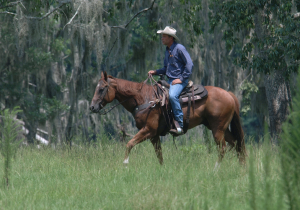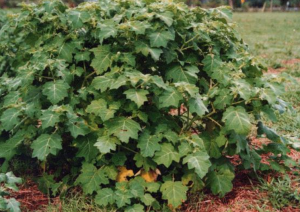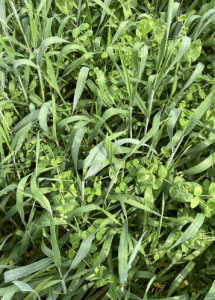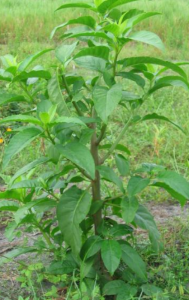There are many ways to help manage your pastures, one of them being weed management. Weed management involves scouting for weeds in your pastures frequently, being aware of ways to prevent seed contamination, and different ways to control weeds. Here are the steps for better weed control and management.
Scouting for Weeds
-
- Scout for weeds periodically in your pastures
- Proper identification of weeds
- Contact your local Extension Agent if you can not identify a weed
- Try to eradicate the weed before it reaches maturity (seeds)
- Identify poisonous plants in your pastures before your livestock ingest them


Prevention
-
- Transportation
- Most weeds are spread by seed
- Seeds can be transported by hay, harvested grass seed, sod, cattle, birds, & mowing equipment
- Try to buy hay that is not contaminated with weed seeds
- Using certified forage seed reduces weed seed contamination
- Rotational Grazing
- This method is needed when stocking rates are high or forage being grazed requires careful management for long-term survival.
- Alternating periods of livestock grazing and rest in two or more pastures.
- Helps prevent overgrazing and bare spots in pastures
- Transportation

Weed Control
-
- Cultural Control
- Cultural practices improve weed control by increasing the competitiveness of the forage.
- Involves optimizing forage production by monitoring the soil pH, fertility, and potential irrigation management.
- Biological Control
- Involves the use of biotic agents (plants, herbivores, insects, nematodes) to suppress weeds.
- Rarely provides complete weed control, but they usually suppress the weed population to a manageable level.
- Mechanical Control
- Mowing is one of the most often used weed control methods in pastures.
- It is generally more effective if properly timed before weed produces a seed.
- Chemical Control
- Includes using herbicides to control your weed population.
- Proper herbicide choice and application rate are extremely important.
- Cultural Control
Toxic Weeds
-
- American Black Nightshade
- Very toxic to Livestock
- Control: Systemic Herbicides (glyphosate 2-4D)
- Grows year-round
- American Black Nightshade

-
- Coffee Senna
- Very toxic to Livestock
- Control: Systemic Herbicides (GrazonNext HL or 2-4D)
- Closely related to Sicklepod
- Coffee Senna

-
- Common Pokeweed
- Toxic to Livestock
- Control: Systemic Herbicides (Dicamba or 2-4D)
- Red trunk-like stem and black fruit
- Common Pokeweed

 0
0
